Diplomacy – a key to peace: modern challenges and paths to dialogue discussed in Ashgabat
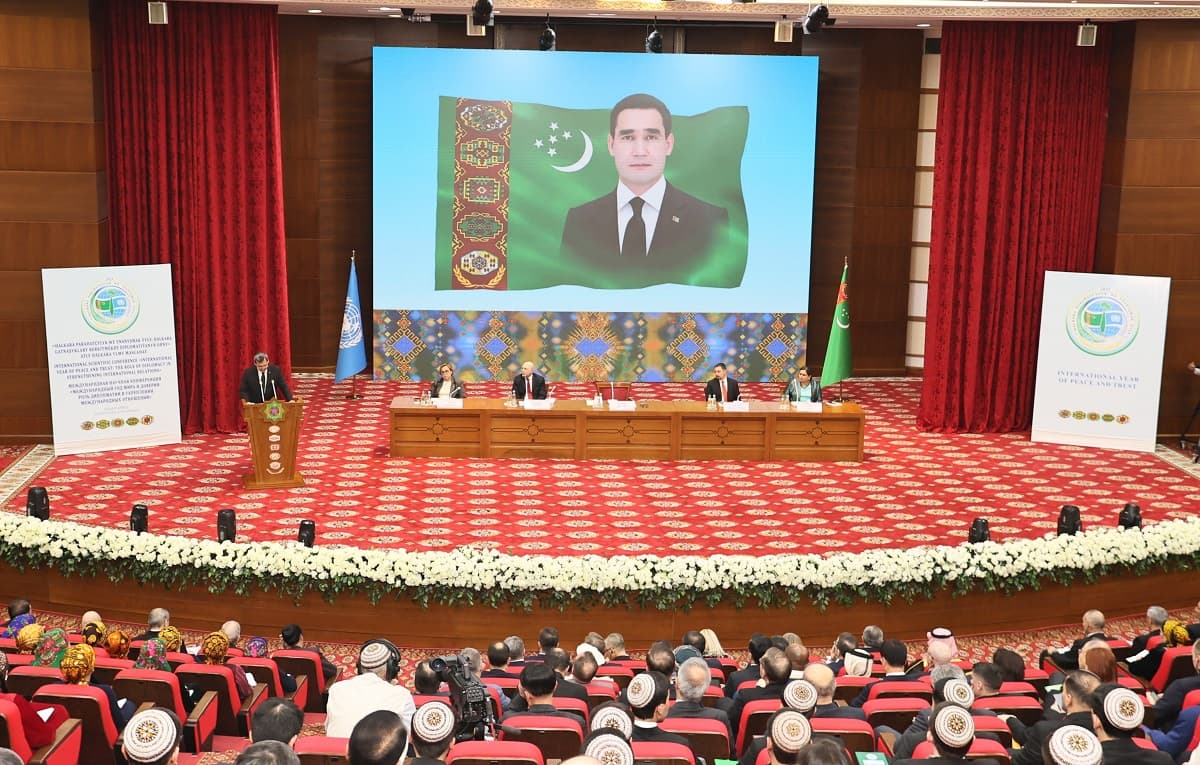
On the occasion of the Day of Diplomatic Workers on February 18th, a conference was held at the Institute of International Relations of the Ministry of Foreign Affairs of Turkmenistan. The conference, titled "International Year of Peace and Trust: The Role of Diplomacy in Strengthening International Relations".
The forum brought together leaders, staff, and veterans of Turkmenistan's diplomatic service, heads and representatives of diplomatic missions and international organizations, university faculty and students, leaders of public associations, and reporters from national and international media outlets. The conference began with the reading of a congratulatory message from President Serdar Berdimuhamedov to diplomatic workers.
In his address to the attendees, Turkmenistan's Foreign Minister Rashid Meredov emphasized that Turkmen diplomacy, its unique characteristics, evolution, and achievements cannot be understood outside the historical context, detached from the deep-rooted layers of national mentality, traditions, foundations, and worldview.
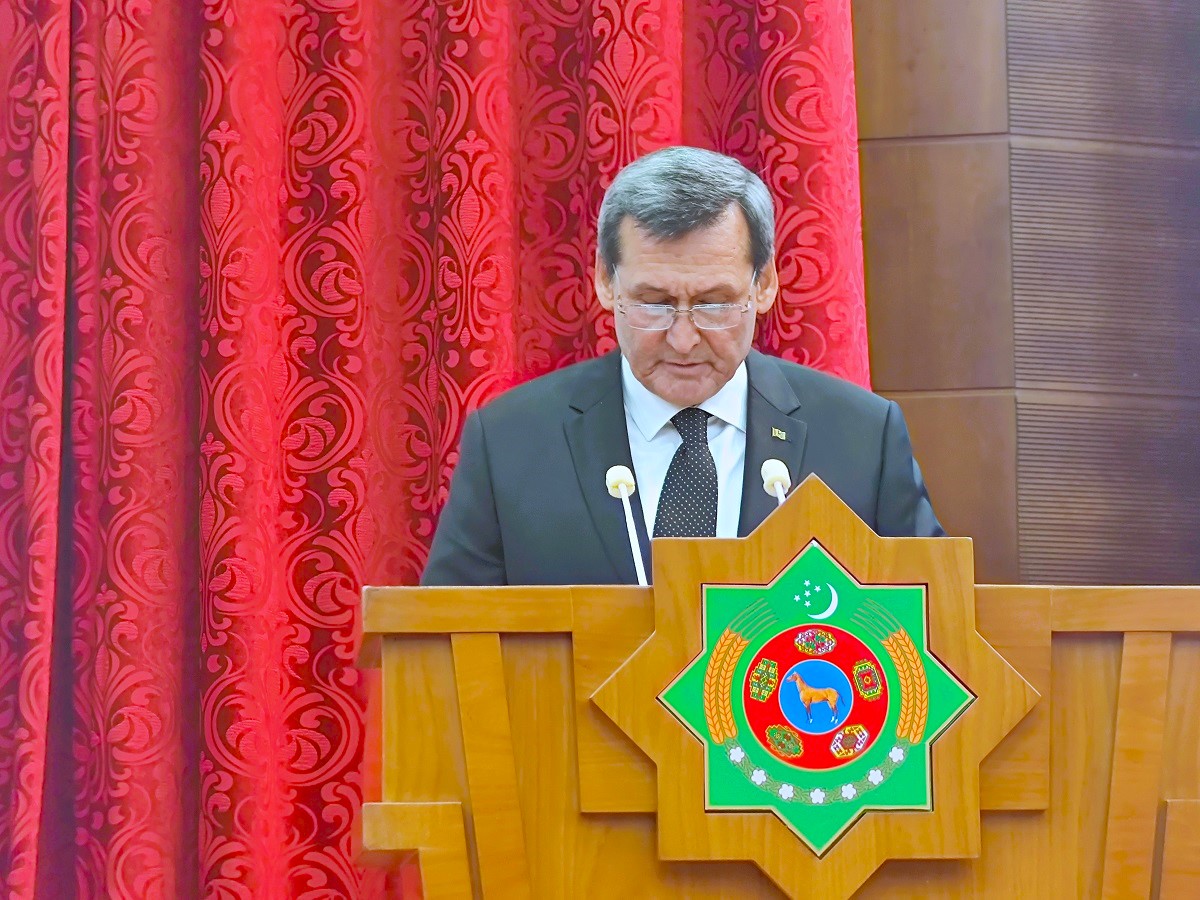
It is clear that diplomacy, like other components of international politics, is experiencing a challenging period. Unfortunately, in recent years, the global political landscape has become significantly more complex, with serious conflicts and contradictions emerging. This has directly impacted diplomacy, altering its essence and objectives, distorting its language and style, and showing a marked disregard for the norms of international law.
These developments are a cause of great concern for all responsible and constructive members of the international community. It is becoming evident that the real path to normalizing the situation and overcoming crises lies in returning diplomacy to its original mission as a means of dialogue and cooperation, the Minister stressed.
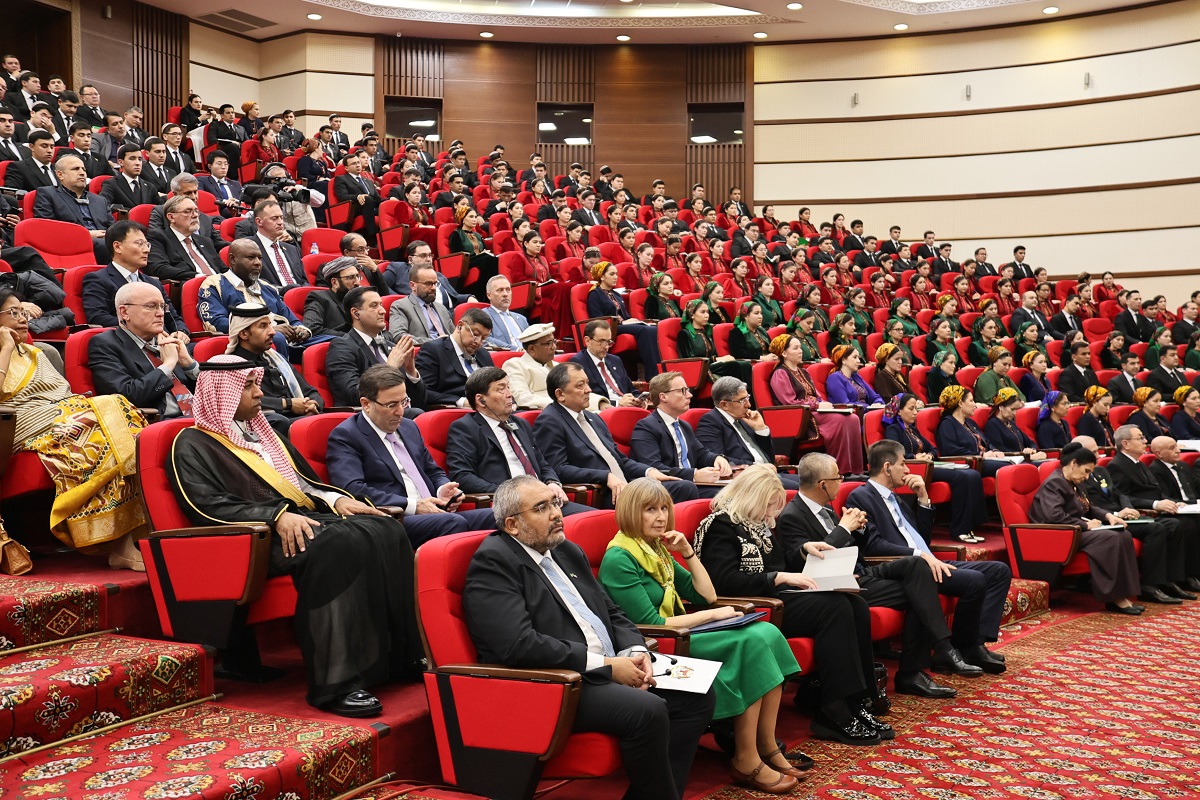
Meredov noted that in recent days and weeks, we have observed the first, albeit still tentative, but significant signs of such dialogue, which Turkmenistan welcomes. The thesis put forward several years ago by the National Leader of the Turkmen people, that reliance on confrontational thinking will sooner or later prove its futility and fruitlessness, and that the only alternative and guarantee of peace is respectful and equal dialogue, is fully confirmed. In this regard, the global initiative "Dialogue is a Guarantee of Peace", put forward by Turkmenistan in 2021, seems very justified and forward-looking in light of the clearly positive signals and events that are being observed in world politics these days.
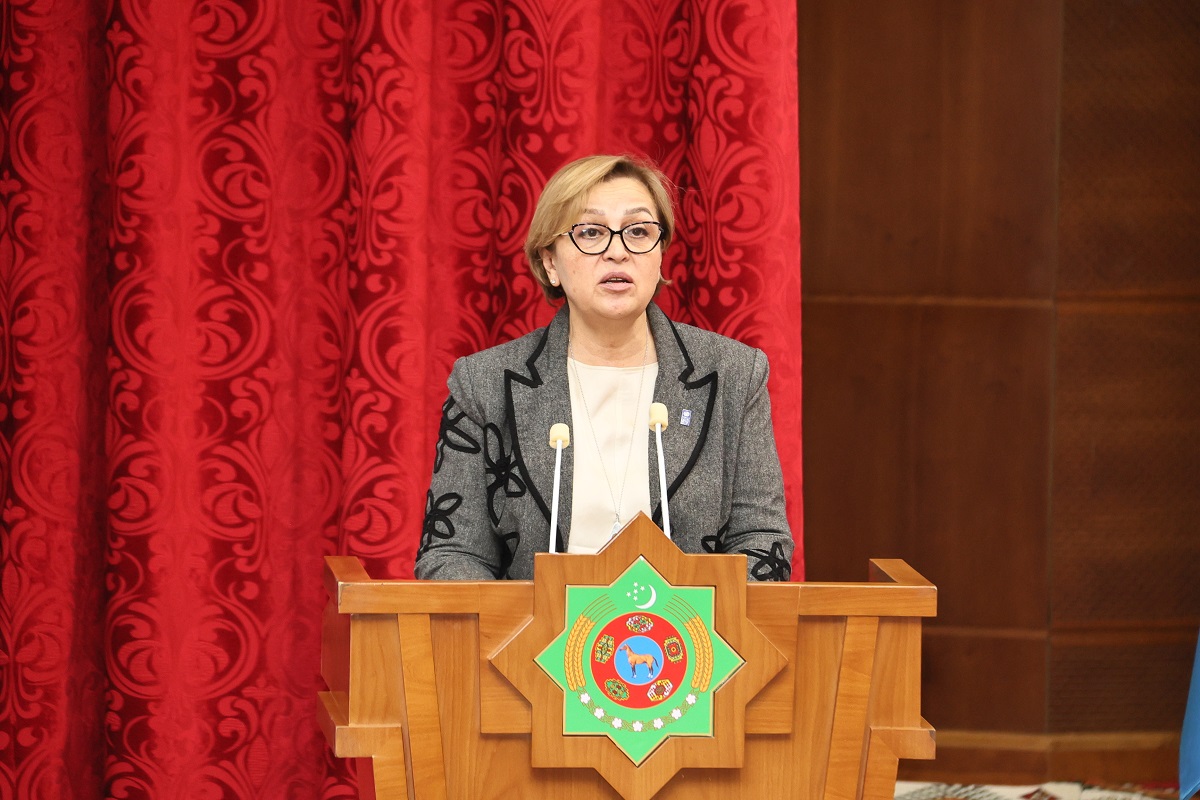
In her remarks, the UNDP Resident Representative in Turkmenistan, Narine Saakyan, emphasized the importance of diplomacy in the modern world, noting that it is a powerful tool for strengthening peace, promoting sustainable development, and addressing global challenges. Saakyan acknowledged Turkmenistan's commitment to the principles of positive neutrality and its active participation in international efforts to promote peace and trust.
The UN envoy also highlighted the successful cooperation between Turkmenistan and UNDP across various domains, including economic advancement, social welfare, environmental conservation, and the reinforcement of democratic institutions. She remarked that UNDP highly values its alliance with Turkmenistan and remains committed to collaborative efforts towards achieving the Sustainable Development Goals.
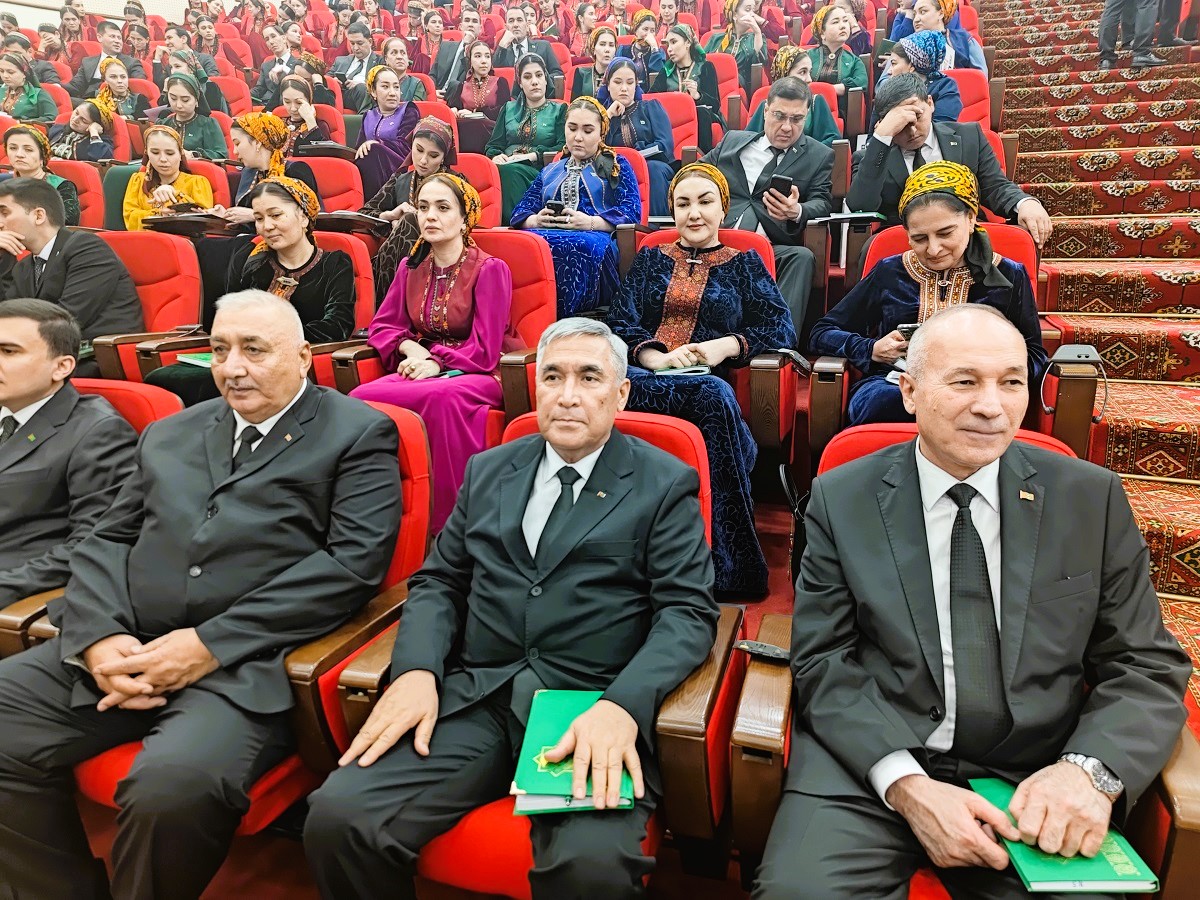
The UNDP Resident Representative voiced confidence in the continued success of Turkmen diplomats in fulfilling their professional duties, thereby bolstering the nation's international standing and propelling its foreign policy initiatives.
The European Union's Ambassador to Turkmenistan, Beata Peks also pointed out that the world today is grappling with intricate and ever-shifting challenges. The global landscape, notably within the European Union and Central Asia, is encountering perhaps the most severe trials in recent decades. This reality underscores the critical importance of diplomacy—diplomacy as the foremost line of defense. Now, more than ever, our collective endeavors, our professionalism, and our dedication to dialogue are pivotal in navigating these turbulent times, stated the EU Ambassador.
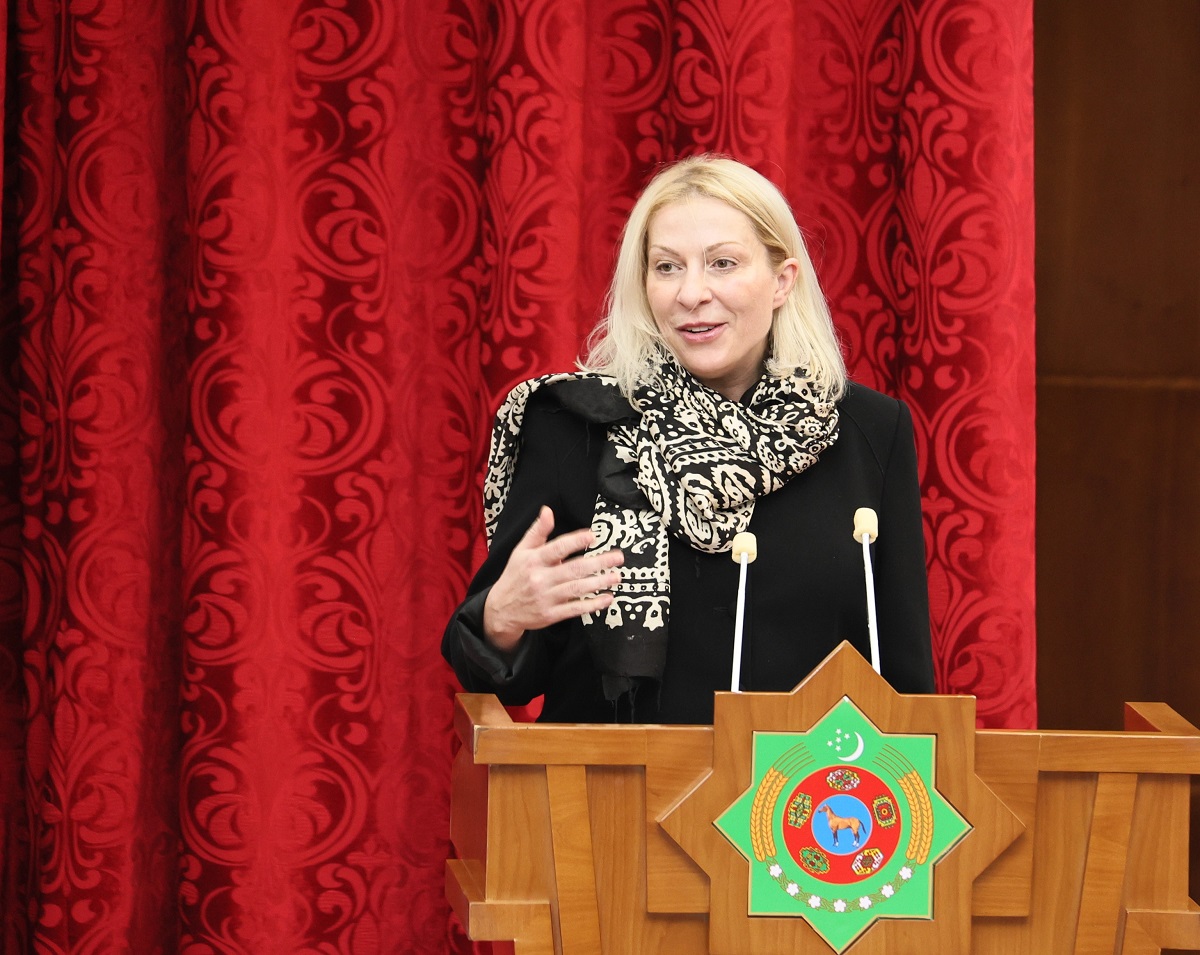
In this context, she highlighted the achievements of Turkmenistan's Ministry of Foreign Affairs. Since its inception in 1991, the ministry has swiftly established a robust diplomatic network, forging connections with 151 countries and actively participating in 49 international organizations. Turkmenistan's 40 diplomatic missions abroad, along with the 37 foreign embassies and 13 international organizations represented here, demonstrate a firm commitment to global engagement. These missions serve as vital platforms for nurturing partnerships across political, economic, cultural, and humanitarian spheres.
The Ambassador also commended Turkmenistan's investments in future diplomats. The Institute of International Relations, the Center for Training Administrative and Technical Personnel, and the esteemed publication "Foreign Policy and Diplomacy of Turkmenistan" all contribute to nurturing the next cohort of diplomatic leaders and foster a deeper understanding of Turkmenistan's foreign policy approach.
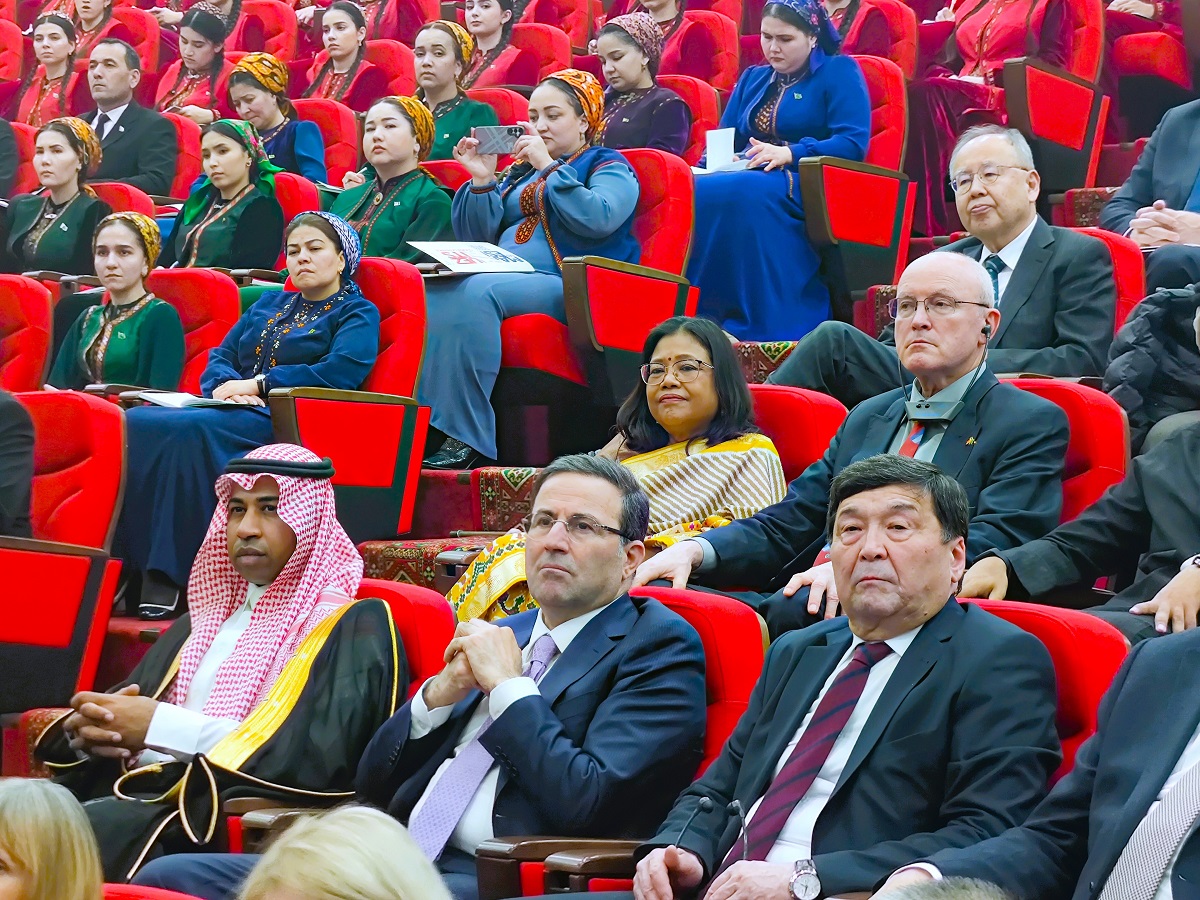
Speaking of the EU Delegation in Ashgabat, Beata Peks noted the interaction with missions from four EU member states, which significantly contribute to the robust relationship between Turkmenistan and the EU, and the close collaboration with embassies from 23 other nations accredited in Turkmenistan.
She observed that the global situation, particularly in regions like the European Union and Central Asia, presents us with unprecedented challenges. This complex international environment demands heightened professionalism and intensified diplomatic efforts during this unique period in world history.
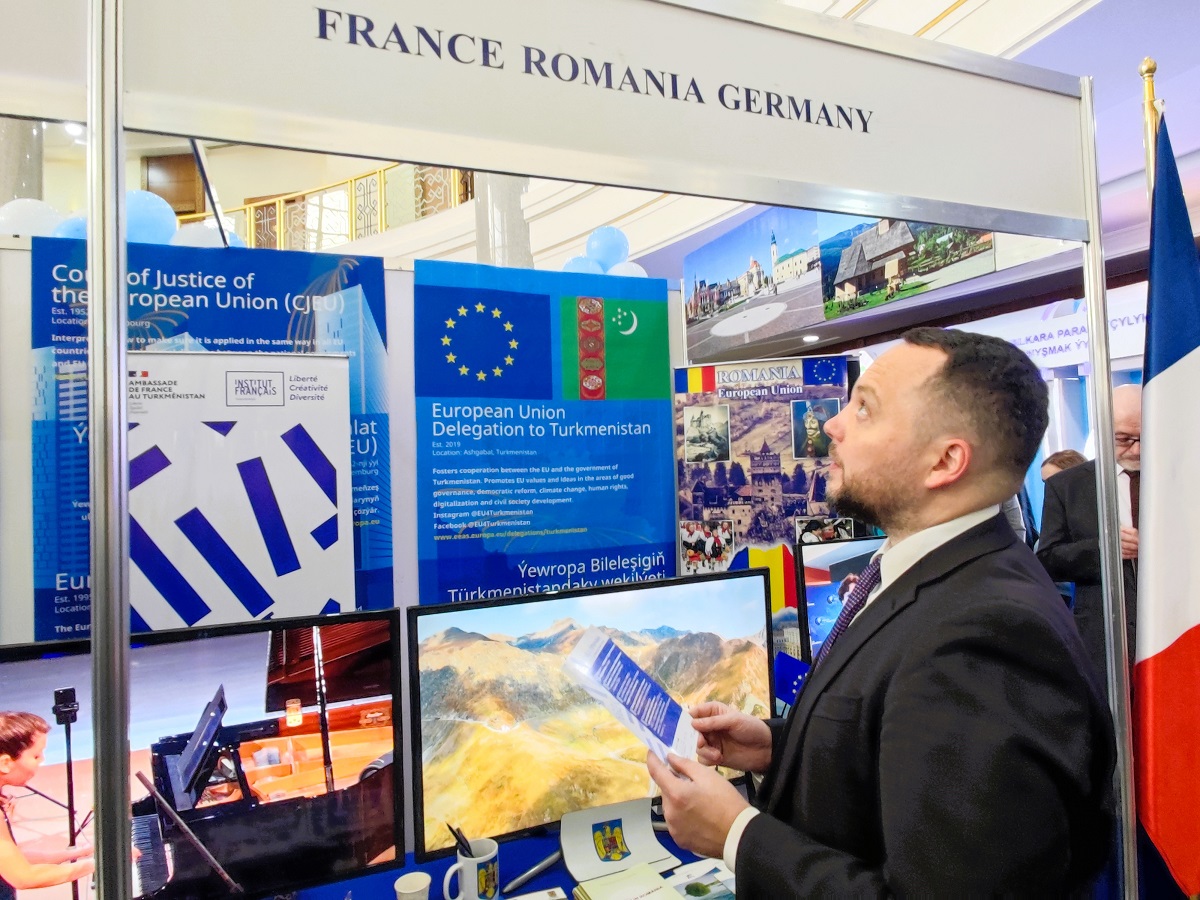
The ceremonial event also featured addresses from the Ambassadors of the Republic of Turkey, the People's Republic of China, Malaysia, the United Kingdom of Great Britain and Northern Ireland, and the United States of America to Turkmenistan.
In particular, US Ambassador Elizabeth Rood shared reflections on what it means to be a diplomat in the modern world. If we perceive the world as a hostile place, we see potential adversaries in everyone else. According to the ambassador, it is better to view diplomacy as the art of advancing national interests through human connections, trust, and a constant pursuit to understand others.
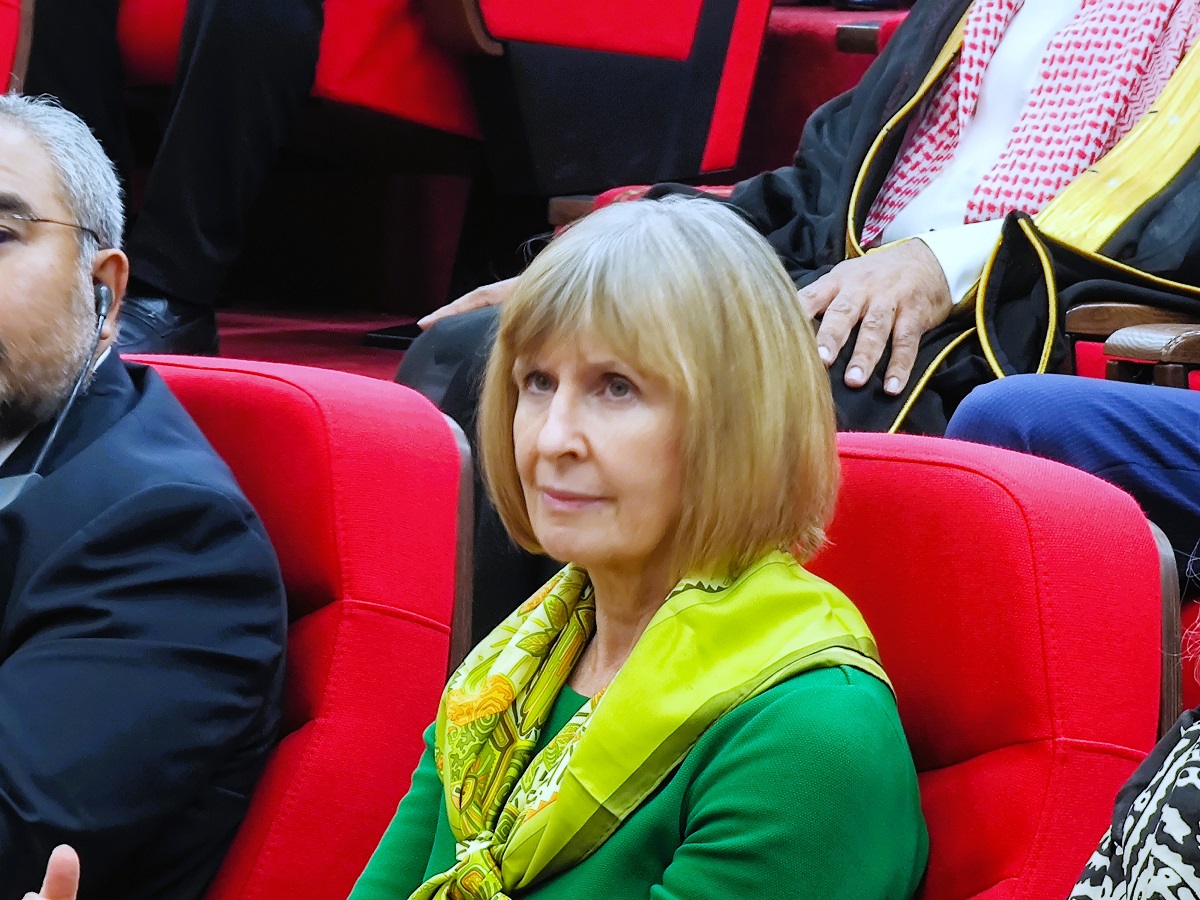
In a world of instant digital communication, the value of traditional diplomacy is increasingly questioned. Some wonder: why do we need embassies and diplomats around the world when leaders can communicate with each other and with the global public directly at any moment using digital tools?
Answering this question, Elizabeth Rood quoted the renowned American diplomat Bill Burns: "In today's world of digital and virtual relations, there is still no substitute for traditional human interactions—whether in business, in romance, or in diplomacy". The ambassador supplemented this statement with the words of the great American journalist Edward R. Murrow, who said half a century ago: "The really critical link in the chain of international communications is the last three feet, best traversed by personal contact—when one person speaks to another".
This human contact, these “last three feet”, remain the heart of diplomacy. As we learned during the COVID pandemic, no digital communications can replace the personal interactions that create connections between people, Ambassador Rude noted.
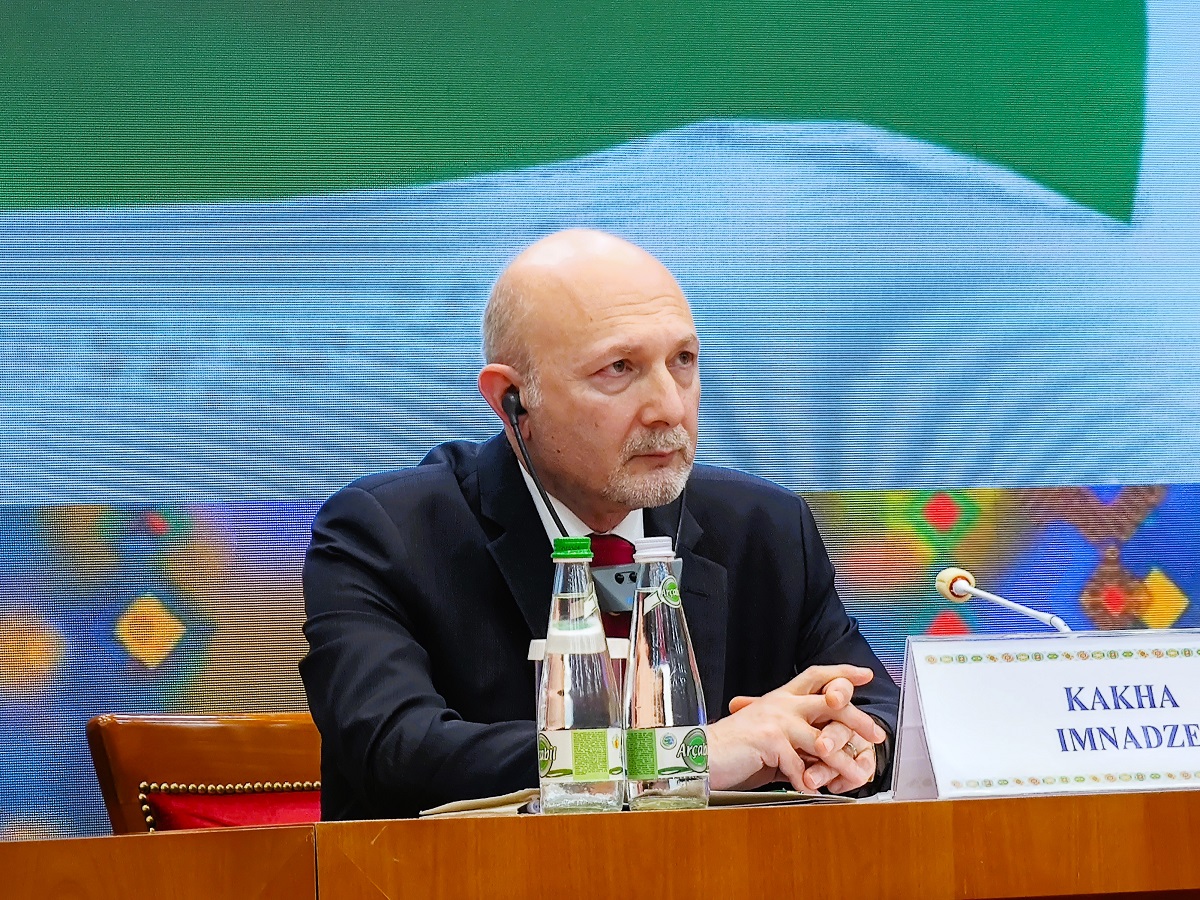
Expressing gratitude to the Turkmen side for their continuous efforts to unite the diplomatic corps, "making it the most cohesive group in my entire career", the Ambassador compared diplomacy to gardening. A diplomat constantly plants the seeds of human relations, waters them, watches them grow and blossom, removes weeds, and shares the fruits of their labor in difficult times.
"Our diplomatic garden in Ashgabat is thriving thanks to the hospitality and kindness of the host government and our care for one another. When we, as diplomats, care for each other, we create the second most important component of diplomacy: trust", the Ambassador stated.
According to the UN General Assembly resolution adopted at the initiative of Turkmenistan, 2025 has been declared the International Year of Peace and Trust. Peace in the world cannot be built without trust between countries. It is the diplomatic representatives of our countries who must build this trust, Elizabeth Rude urged her colleagues.
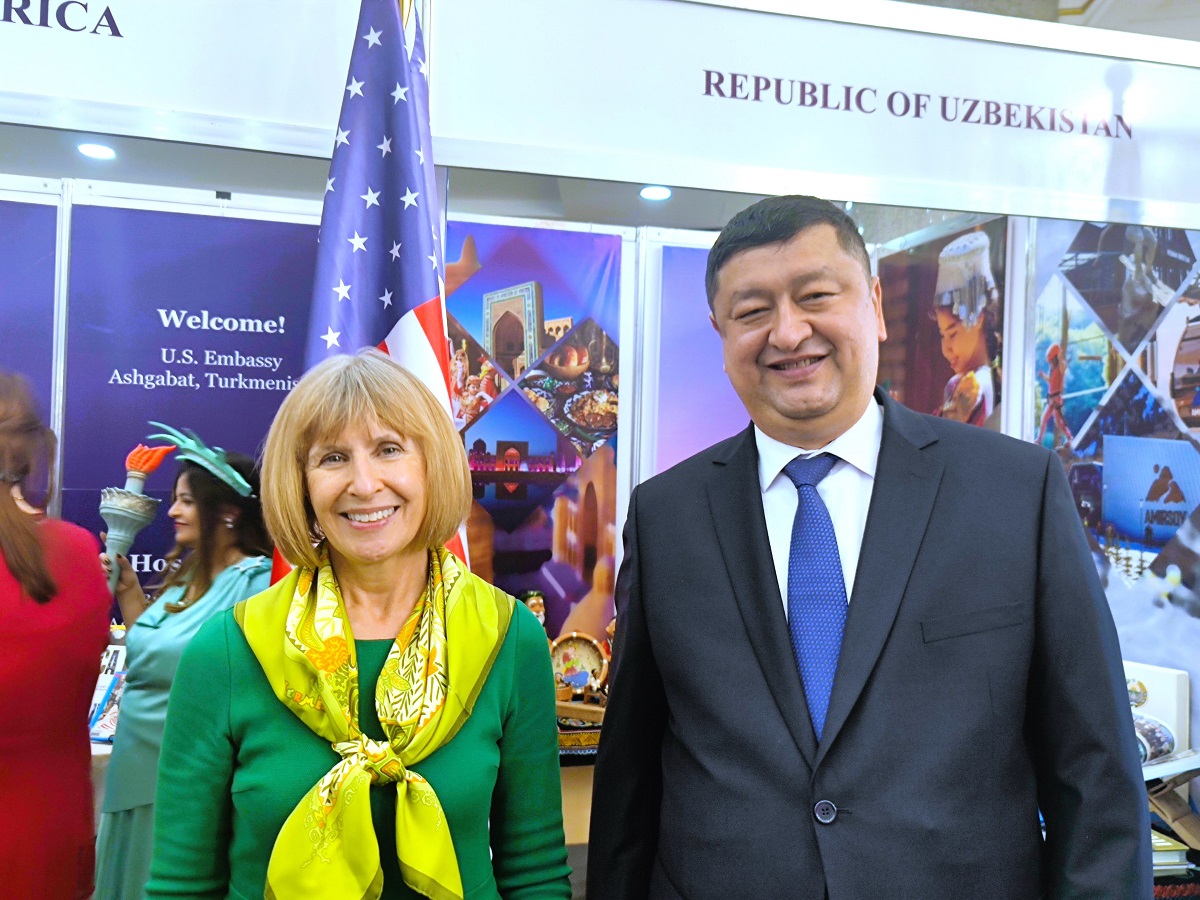
The UN General Assembly resolution on the International Year of Peace and Trust states that "peace and trust imply the acceptance of differences and the ability to listen, recognize, respect and appreciate others". On behalf of the United States, the Ambassador expressed unwavering support for Turkmenistan's policy of positive neutrality, which enables it to play a unique and constructive role in international diplomacy.
"May this Year of Peace and Trust bring progress in resolving conflicts around the world, and may our diplomatic efforts lead to a more trusting world" the Ambassador emphasized.
The Chinese Ambassador to Turkmenistan, Qian Naicheng, focused his speech on the relations between China and Turkmenistan, which in recent years, thanks to the strategic leadership of the leaders of the two countries, have reached a new level of comprehensive strategic partnership. Political trust between our countries continues to deepen, mutually beneficial cooperation in various fields is becoming more qualitative, and the foundations of a community of common destiny for China and Turkmenistan are becoming stronger.
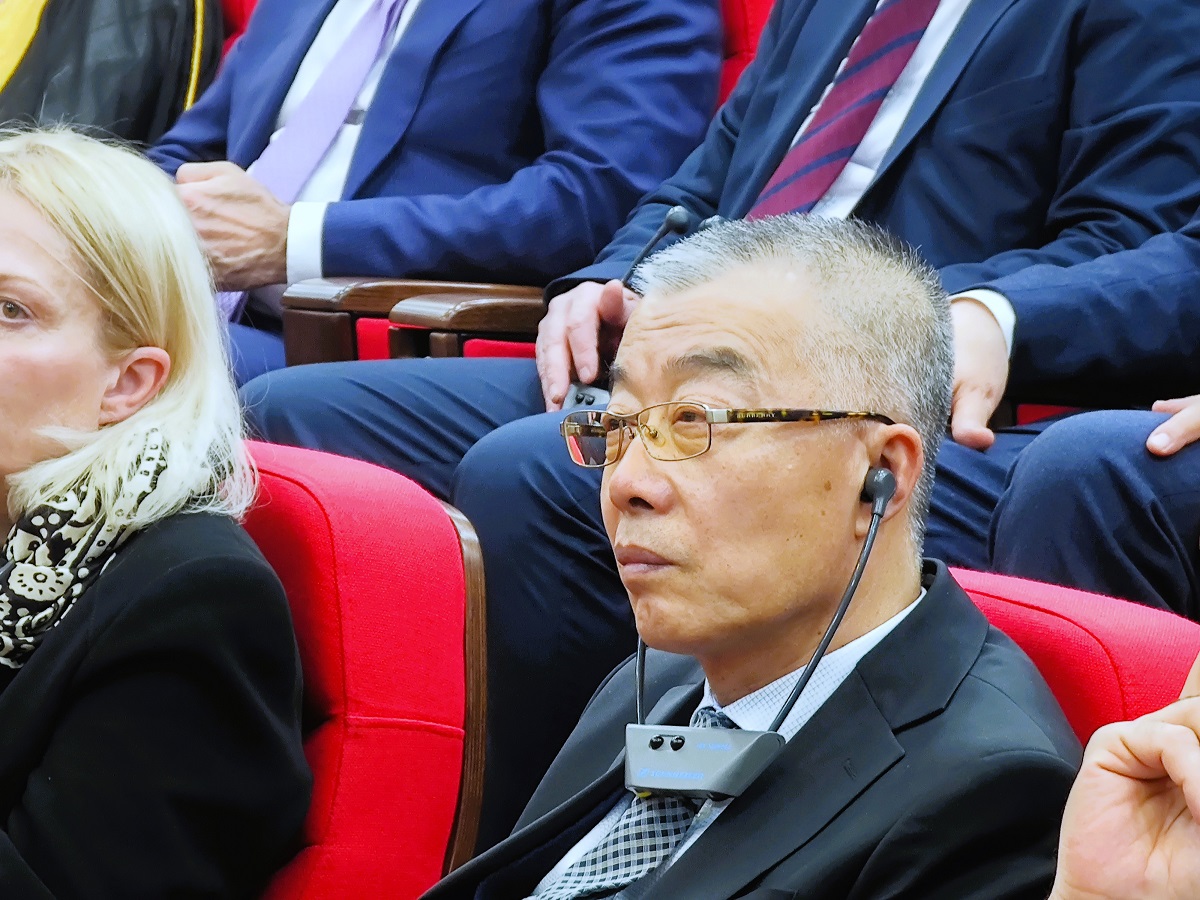
Currently, the world is experiencing unprecedented changes unseen in a century, and humanity is facing unprecedented challenges. China and Turkmenistan have close approaches to development, similar cultural values, and converging international views. The Chinese side is ready to continue close cooperation with the Turkmen side, raising the sail of trust and taking the oars of cooperation, to jointly promote the comprehensive, balanced and multidimensional development of Chinese-Turkmen relations, the Ambassador figuratively expressed.
The Ambassador of the Republic of Turkey to Turkmenistan, Ahmet Demirok, emphasized in his speech that Turkmenistan uses its neutrality not to stay away from global changes and problems, but, on the contrary, to make a constructive contribution to their solution. In his conviction, it is very significant that at a time when the world is in dire need of trust, dialogue and peace, Turkmenistan calls for friendship and stability.
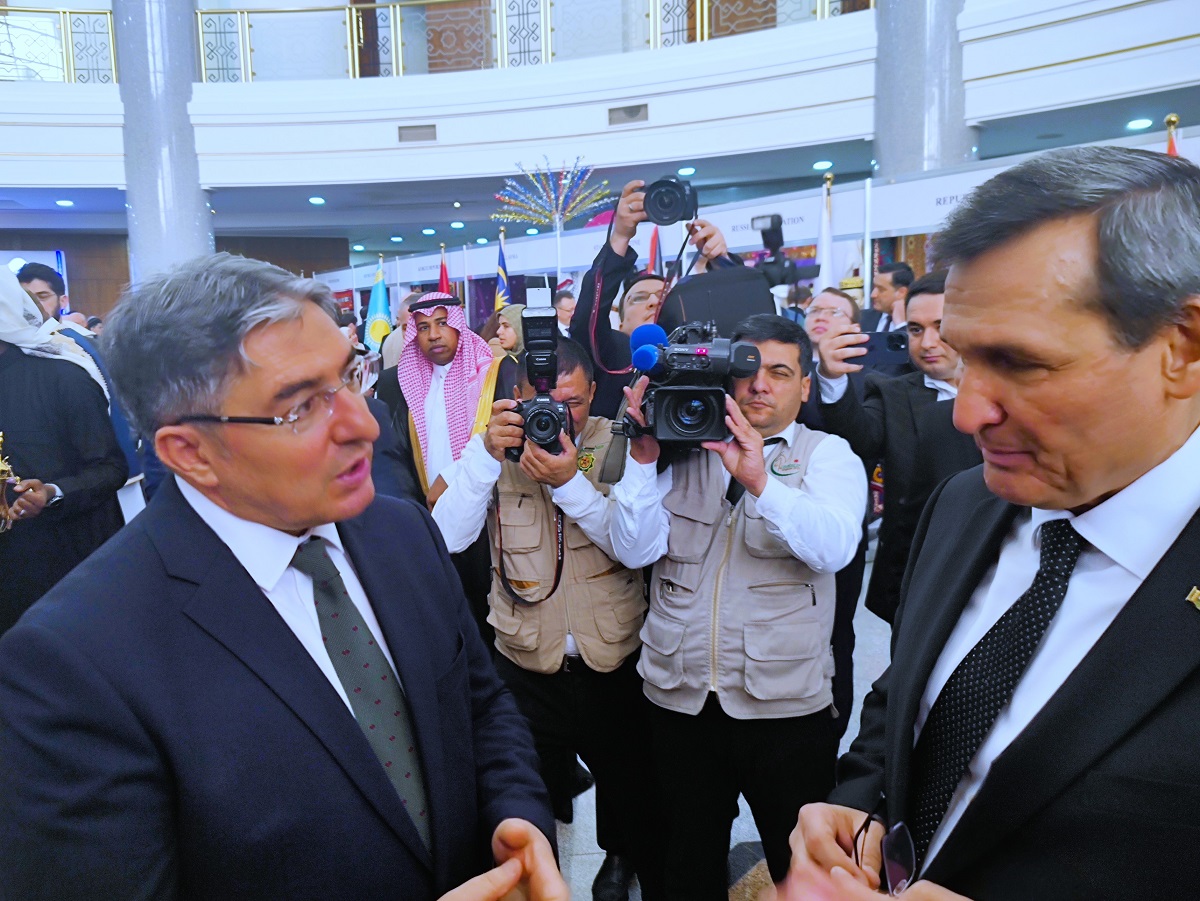
He also said that next week Turkey is preparing to receive the Chairperson of the Mejlis of Turkmenistan, the Deputy Chairman of the Cabinet of Ministers, who oversees trade relations, and the Minister of Education of Turkmenistan, noting that the relations between Ankara and Ashgabat are built not only on common interests, but also on a deep spiritual connection based on mutual respect.
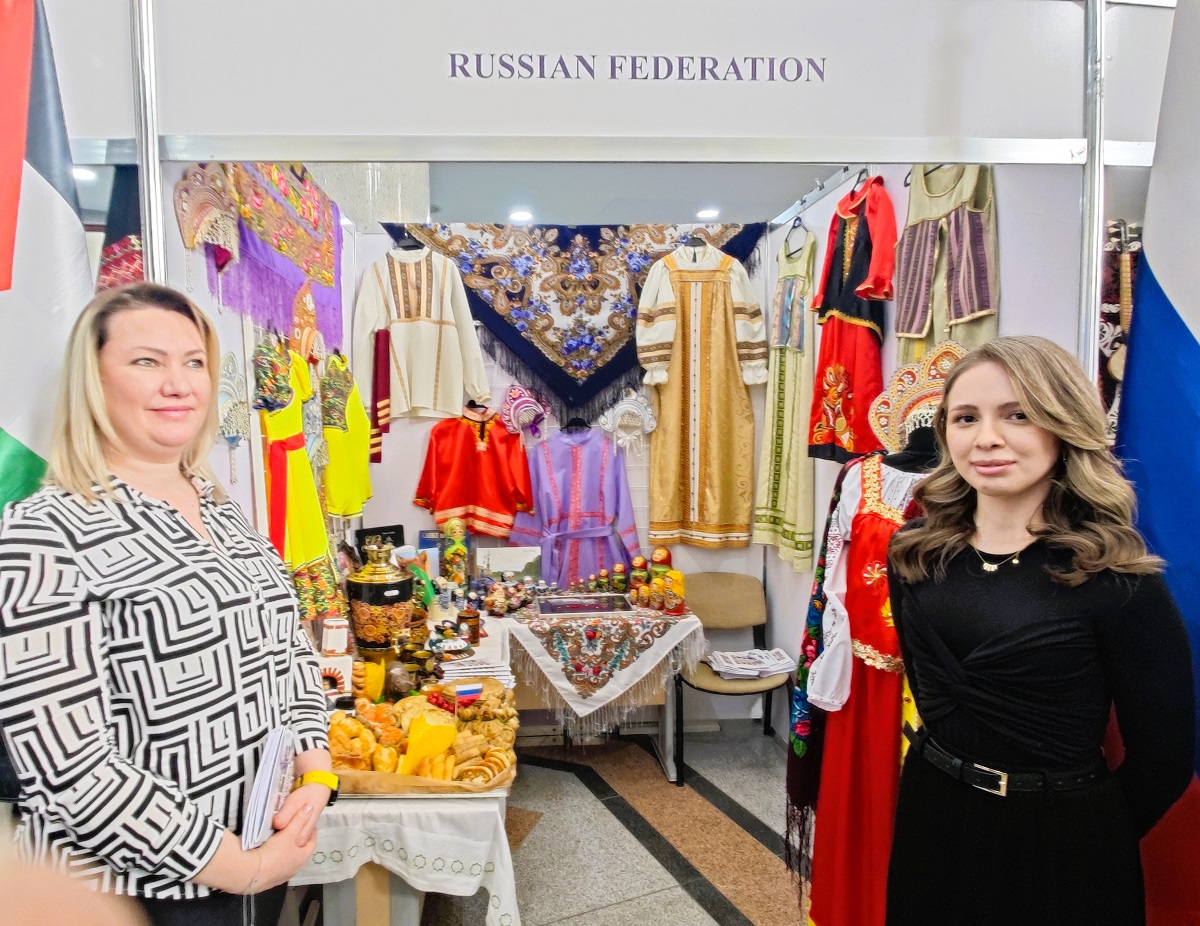
The Malaysian Ambassador to Turkmenistan, Mohd Suhaimi Ahmad Tajuddin, in turn, emphasized that diplomacy remains the first line of defense in navigating the complexity of international relations. The mission of diplomats is to prevent conflicts, build bridges and promote mutual understanding. History has shown that when diplomacy fails, the consequences can be catastrophic. That is why our role is more important than ever to address global challenges and promote a world of cooperation and shared progress, the Ambassador said.

"Malaysia highly appreciates Turkmenistan's commitment to neutrality, which has significantly contributed to regional and global peace. In the face of an ever-changing geopolitical landscape, Turkmenistan's foreign policy of neutrality serves as a strategic approach to maneuvering in a complex international environment, ensuring fruitful relations with neighbors and beyond", Mohd Suhaimi Ahmad Tajuddin emphasized.
He recalled the first official visit of President Serdar Berdimuhamedov to Kuala Lumpur on December 18-19, 2024, which became a milestone in bilateral relations and a catalyst for many new initiatives. In addition, Kuala Lumpur will host the International Forum on Attracting Foreign Investments to the Economy of Turkmenistan on April 23-24.
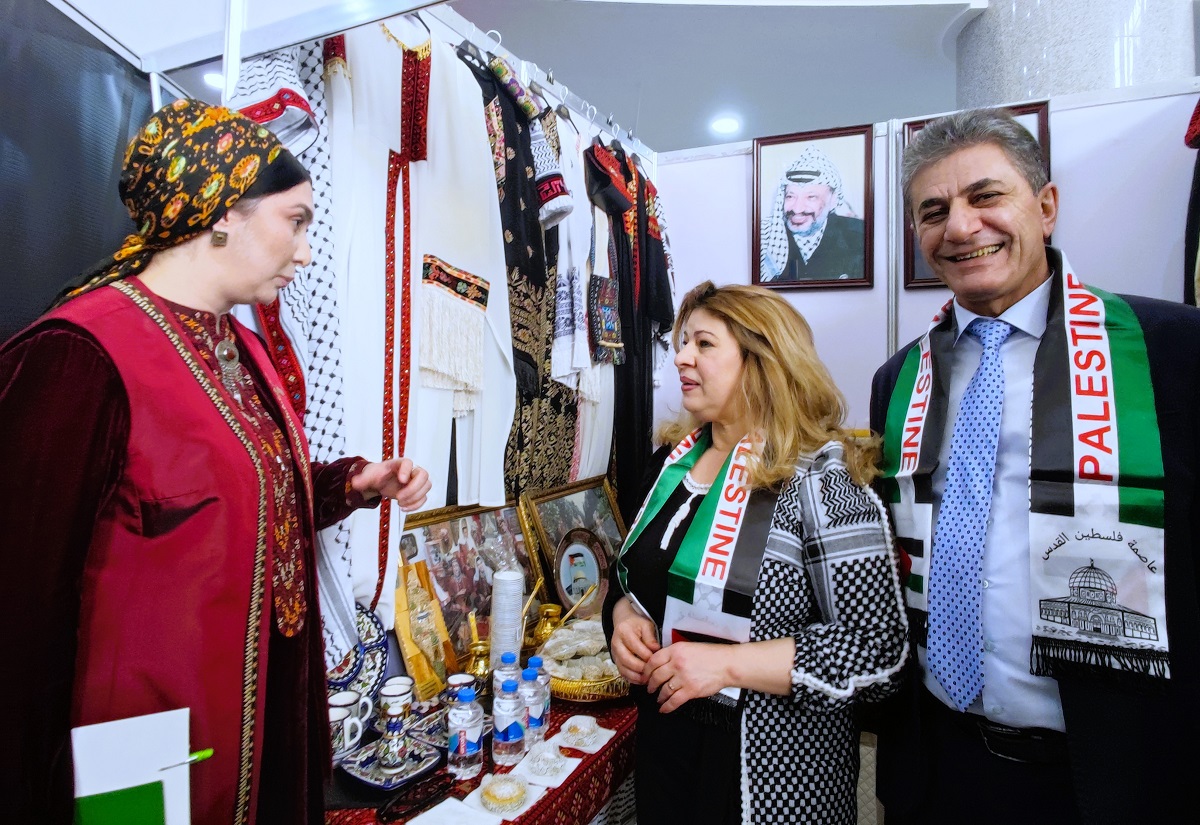
According to the Ambassador, Turkmenistan's strategic vision in developing international transport corridors, including cooperation with Kazakhstan and Afghanistan, the construction of the Turkmenistan-Afghanistan-Pakistan-India (TAPI) gas pipeline, the new airport in the Balkan region, and other initiatives in the field of regional connectivity, deserves high praise.
Within the framework of the forum at the Institute of International Relations of the Ministry of Foreign Affairs, an exhibition was organized where foreign embassies and international organizations presented their colorful and informative stands.
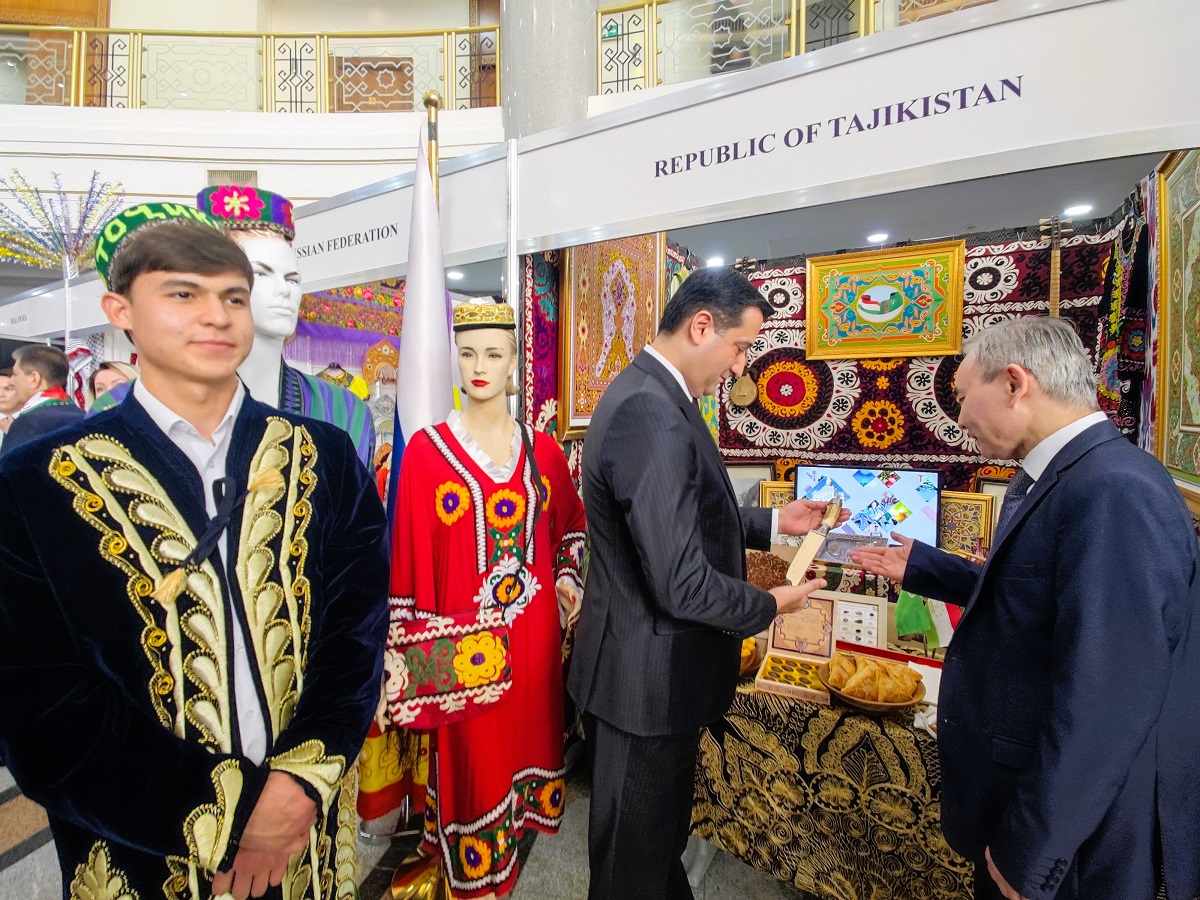
The exhibition became a true kaleidoscope of cultures and traditions. Ambassadors and other guests explored the exhibits with interest, exchanging friendly greetings, opinions, and impressions about the presented materials, actively discussing the latest news and informally sharing ideas and thoughts about the prospects of joint work.
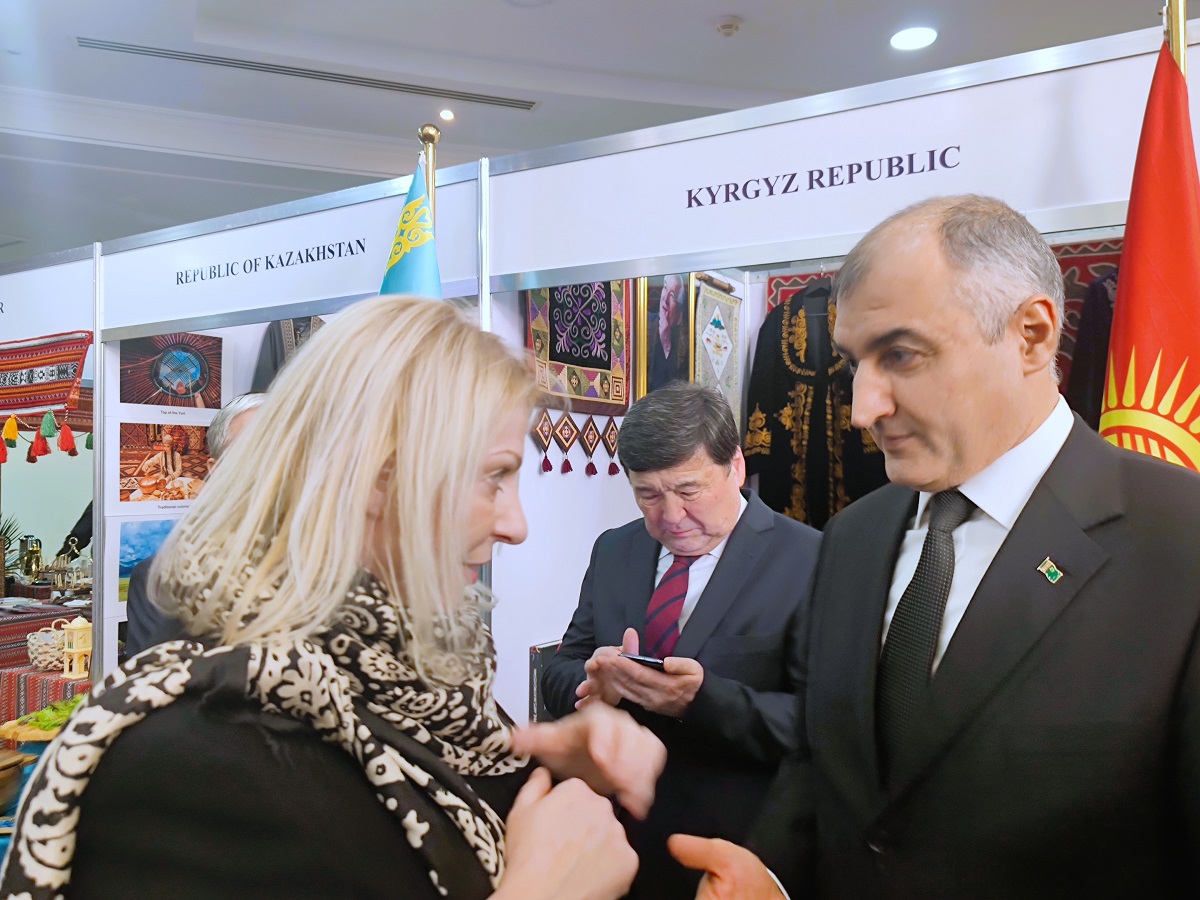
On the occasion of the professional holiday, mentors of the diplomatic service were ceremoniously awarded the insignia "Türkmenistanyň ussat diplomaty" (Master of Diplomacy of Turkmenistan) and corresponding certificates for their personal contribution to the implementation of the country's peaceful foreign policy.
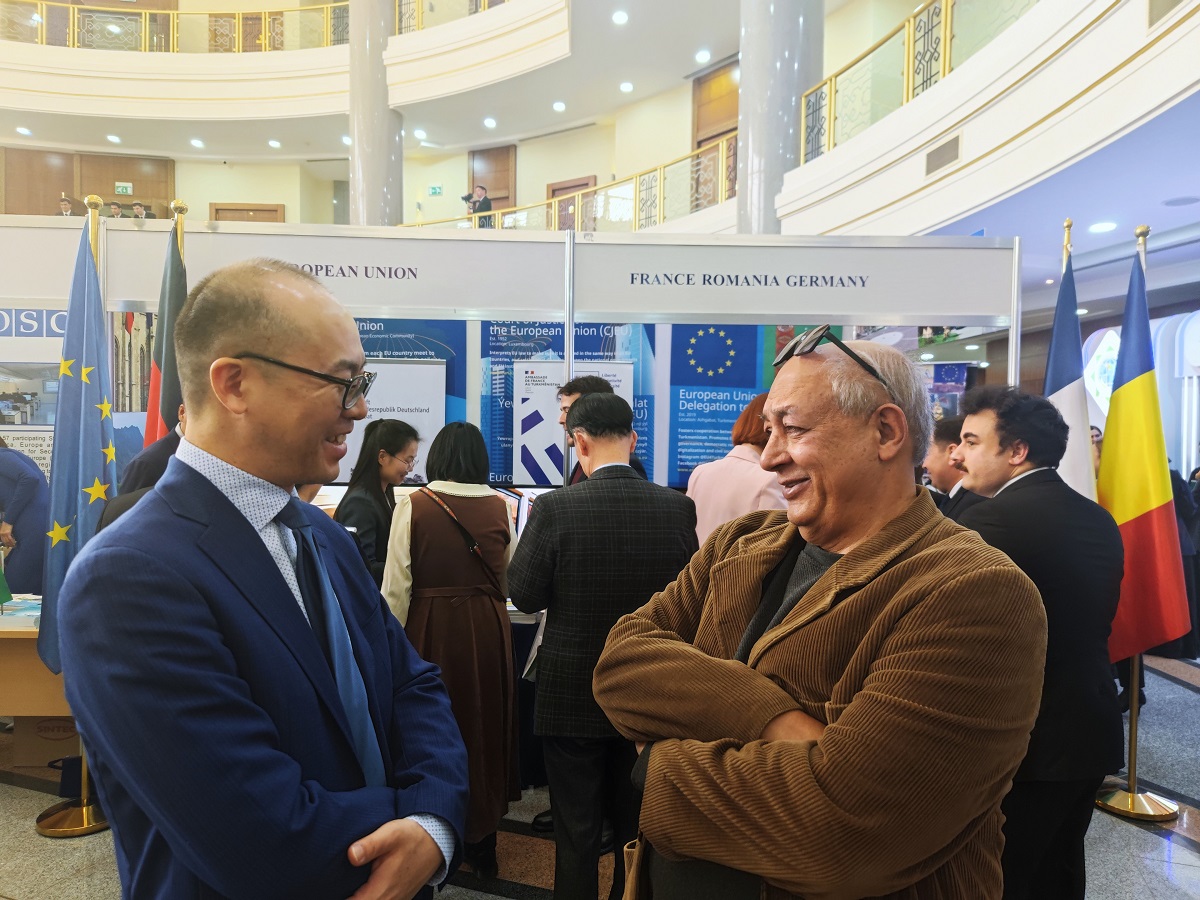
Traditionally, a ceremony was held to present diplomas from the Ministry of Foreign Affairs to young employees of the diplomatic service and graduating students of the Institute of International Relations of the Ministry of Foreign Affairs for their active participation in implementing Turkmenistan's foreign policy strategy.
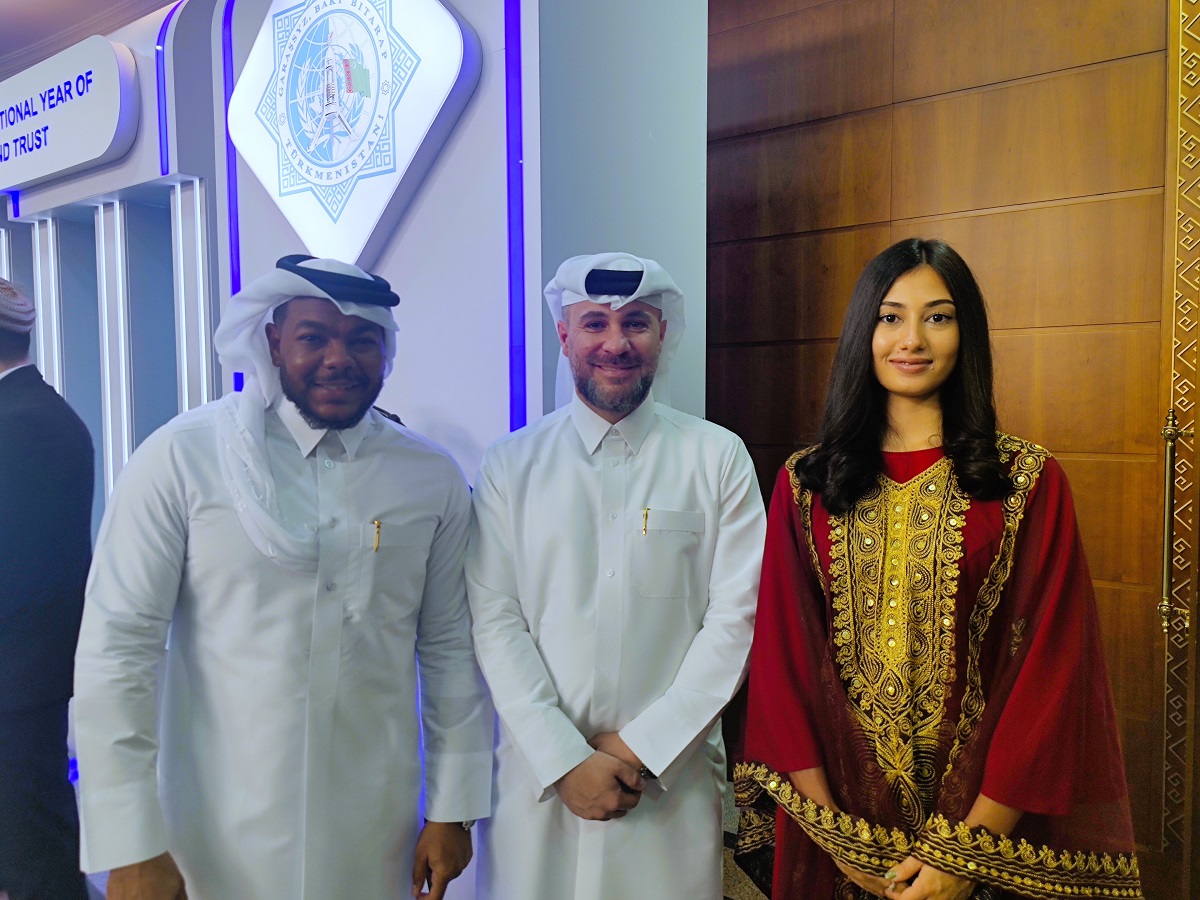
At the end of the conference at the Institute of International Relations of the Ministry of Foreign Affairs, a festive concert was held with the participation of creative groups from universities.
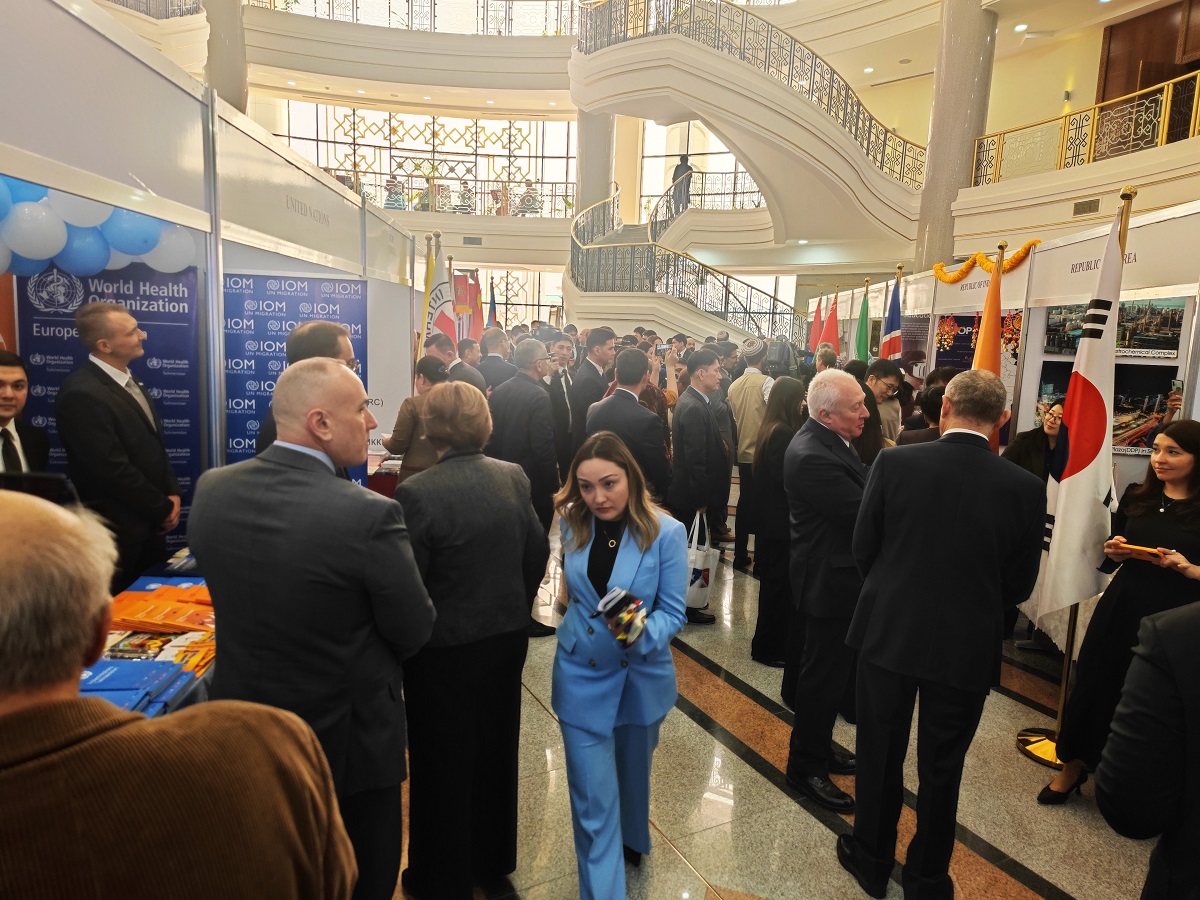
ORIENT



